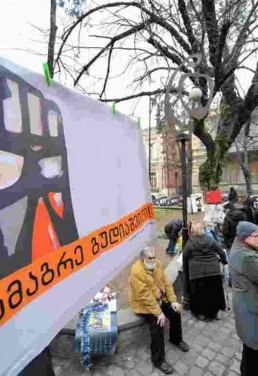საერთო ცხელი ხაზი +995 577 07 05 63


Head: Lela Rekhviashvili
Author: Anabel Priemer , Ida Urban , Simon Munkler, Niklas Schmidt
In the night of the 11th of May, one year after the lifestyle media platform “Vice” published an article titled “Is This Georgian Club the new Berghain?”, Georgian police forces raided Bassiani and Café Gallery, two of the most influential clubs within Tbilisi’s rave scene. The article compares Berlin’s most famous club with Tbilisi’s Bassiani, stating their astonishing resemblance, explaining the harsh drug policies of the Georgian state and the struggles of the LGBTIQ community to a broader audience. What did not catch the interest of an international audience at the time, has now gained more followers and publicity (Hanna: 2017). On the 12th of May 2018, thousands of people assembled in front of the parliament and expressed resistance through a collective dance protest. The protests have shown that there are many people affected by a political and social norms that strongly differs from their own. In response, a counter demonstration of violent right-wing groups with ties to the orthodox church was mobilized, aiming to end the rave in front of the parliament. After an official statement by the government, claiming the police couldn’t protect the Bassiani protest attendants any longer, the demonstration dissolved. The clubs were reopened one week later. The raids themselves do not only seem questionable but also like a power demonstration by the government to remind the community of their place within the neo liberal state, meaning that they are tolerated as long as their activities take place in the realm of night-time economics. The support diminishes, as soon as they confront the state with actual political demands. The government’s tolerance to the LGTBQ community is in that sense clearly driven by the aim of establishing Georgia as a competitor within the European/Western economic hemisphere. The night-life culture struggles to overcome the division between business-oriented politics and their actual political aims, as the protests around the closings were widely misunderstood by the majority of the mostly Christian-orthodox Georgian society.
The website accessibility instruction